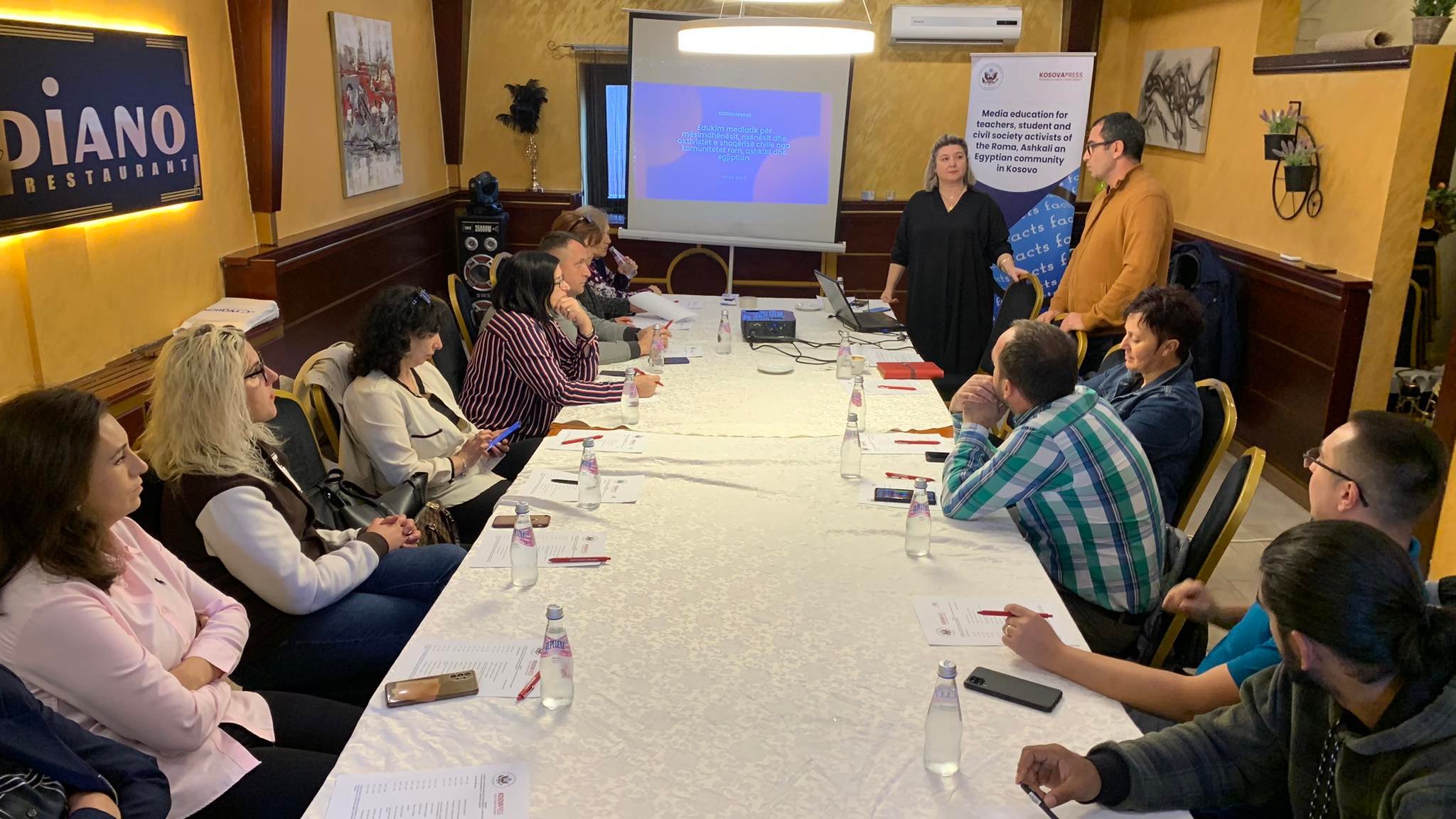
With the financial support of the US Embassy in Prishtina, KosovaPress News Agency, together with the non-governmental organization "Young Community Leaders Center" (YCLC), within the project "Media education for teachers, students, and civil society activists of the Roma, Ashkali, and Egyptian community in Kosovo", have organized today in Mitrovica a workshop about raising awareness against disinformation and preventing disinformation in their communities.
During this workshop, where various examples related to the topic were presented, ways to protect against the danger of fake news and disinformation spread across various internet platforms were also discussed.
Linda Baleta, a lecturer in this workshop, told KosovaPress that the purpose of this workshop is to spread knowledge and techniques of media education, in order to raise awareness about the identification of fake news.
According to her, the topic that is being addressed today is a universal concern that affects everyone without distinction, therefore, in addition to the Roma, Ashkali and Egyptian communities, teachers from other communities are also participating in this workshop."The very title of the workshop shows its purpose, i.e., to spread knowledge and techniques of media education on how we can all become aware of the identification of fake news, the different categories that fall under this umbrella of fake news. However, this is not a topic that affects only these communities, on the contrary, it is a universal concern, so teachers and civil society representatives from other communities are also participating in this workshop, so that we can influence our society as much as possible to be more vigilant, more informed about fake news, disinformation, misinformation and the dangers that come from them, and what are the techniques, such as critical thinking, so that we can protect ourselves from the danger that comes to us", said Baleta.
Jasmina Nikshiq-Avdyli, a participant in this workshop from the Bosnian community, explained that such seminars are welcome for everyone.
"As for such seminars, of course each one of them is welcome, because we receive a lot of information, normally we also associate with other people that are here, and not only us, but the whole society that lives in Kosovo, in our city, our school and in what surrounds us", said Avdyli.Also, Ardijan Krasniqi, a participant from the Egyptian community, said that such workshops are welcome and should be held more often.
"I believe that it is a very good workshop, and workshops of this format should be held as often as possible", he said.
Faruk Avdiu, teacher of the subject of Civic Education at the "Bedri Gjina" school, in Mitrovica, said that during this workshop they received information of interest to the citizens, while he emphasized the need for students to participate in such workshops."During this workshop we received information that was of great interest to the citizens, especially now that we are living in the time of the media where we sometimes have inaccurate information... These workshops would have been better if they were more frequent and with students participating because our focus is on the students, so that they do not fall prey to this disinformation that is given through portals", he said.
The project "Media education for teachers, students, and civil society activists of the Roma, Ashkali, and Egyptian communities in Kosovo", will last seven months and its activities are divided into two phases. The first phase focuses on primary school teachers from grades six to nine, and the second phase of project activities focuses on professors and middle school students from grades ten to twelve.
Today's workshop is the second in a row after the one in Fushë Kosova and will continue to be held in the cities of Prizren and Gjakova.The project “Media education for teachers, students, and civil society activists of the Roma, Ashkali, and Egyptian communities in Kosovo” is supported by the United States Embassy in Prishtina.


